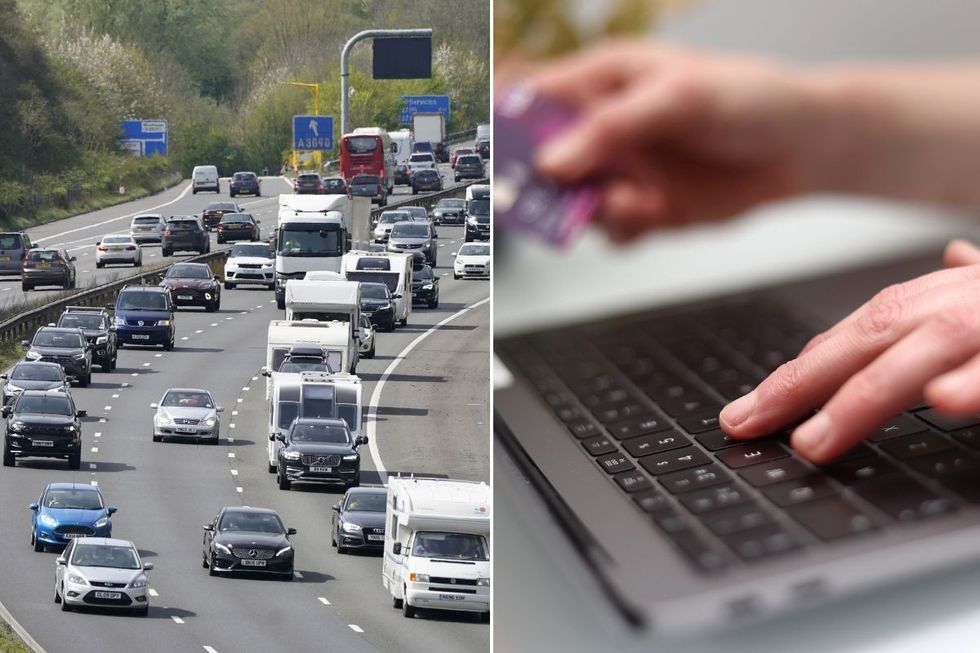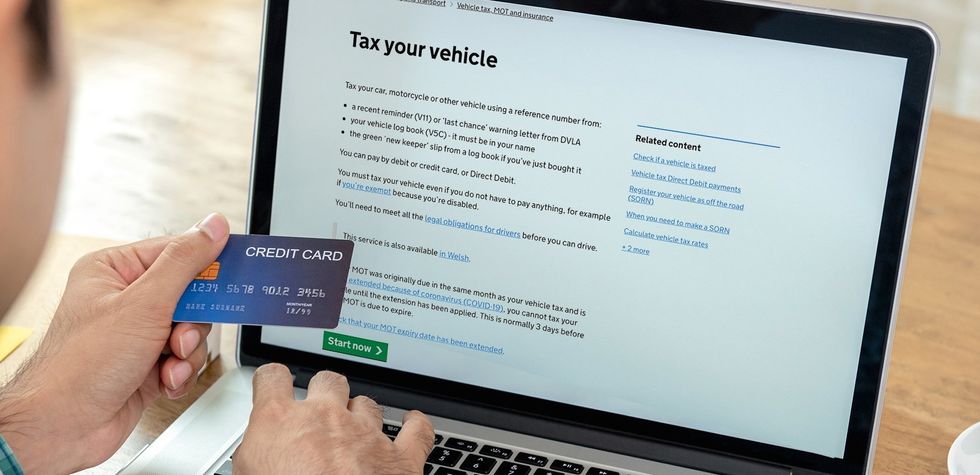A pay-per-mile scheme could be an alternative to the current system of vehicle taxation
PA
Nearly a third of UK drivers have already reduced travel due to rising costs
Don't Miss
Most Read
Trending on GB News
Motorists have been warned that the prospect of paying per mile to drive on the country's roads could be “inevitable” as the shift towards electric vehicles threatens to drain away crucial fuel tax revenue.
Sir John Armitt, chairman of the National Infrastructure Commission, stated that a system may be inevitable as the Treasury grapples with the potential loss of nearly £30billion in fuel duty receipts.
The Government is now considering new ways to fund critical infrastructure like motorways, with pay-per-mile schemes emerging as a likely solution.
This development comes as a recent survey revealed that nearly a third of UK drivers have already reduced their driving in 2024 due to rising costs, highlighting the financial pressures motorists are currently facing.
Do you have a story you'd like to share? Get in touch by emailingmotoring@gbnews.uk

25 per cent of 35 to 44-year-olds are under financial pressure to sell their cars
PAArmitt outlined potential variations of a pay-per-mile system, suggesting schemes that charge more during peak times or a privately-financed toll motorway model similar to France's.
He told The Telegraph: "Politically, it's a very difficult issue. Many people will say road pricing is inevitable. Personally, I don't see why it should be any different to anything else.
“We pay for all our other infrastructure services as we use them." He even proposed a more advanced system where drivers "could pay a different rate, per time of day, per type of road you were driving on, anywhere in the country and you just get a bill because it would all be monitored remotely."
These comments came as the Government announced plans for a new 10-year national infrastructure strategy.
The financial strain on British drivers is becoming increasingly apparent. A survey by car finance lender Carmoolarevealed that 29 per cent of respondents have had to reduce their driving in 2024 due to escalating expenses.
The situation is particularly dire for younger generations, with 30 per cent of 17 to 24-year-olds and 25 per cent of 35 to 44-year-olds indicating they are under financial pressure to sell their cars.
Aidan Rushby, founder and CEO of Carmoola, warned: "The news about the introduction of a pay-per-mile road tax could exacerbate this trend driving more motorists off the road."
The potential impact is significant, with Carmoola suggesting that up to eight million cars, representing 20 per cent of the UK's vehicle fleet, could be sold due to rising running costs.
The introduction of a pay-per-mile tax system could have far-reaching consequences, particularly for younger drivers and those in rural areas.
Rushby added: "It's clear that Brits are already struggling, and the new initiative, planned to launch in October, will have serious implications, especially for younger drivers and those living in rural areas who rely on their cars for essential activities like work and education."
With limited public transport options in rural regions, such a tax risks further isolating vulnerable populations. The average motorist could face costs of around £444 per year, while those in rural areas may see bills increase by £600 for covering 10,000 miles annually.
Despite these challenges, Rushby noted that the new scheme could offer some control to motorists over their expenses.
LATEST DEVELOPMENTS:
 The new car tax changes will be launching in April next year X/DVLA
The new car tax changes will be launching in April next year X/DVLATo help reduce the impending costs for motorists, Carmoola suggested shopping around for insurance and breakdown cover, as well as considering carpooling or sharing fuel costs.
Refinancing car loans to secure better rates could also significantly reduce annual motoring expenses. While the new scheme presents challenges, it may offer drivers some control over their costs based on their mileage.








